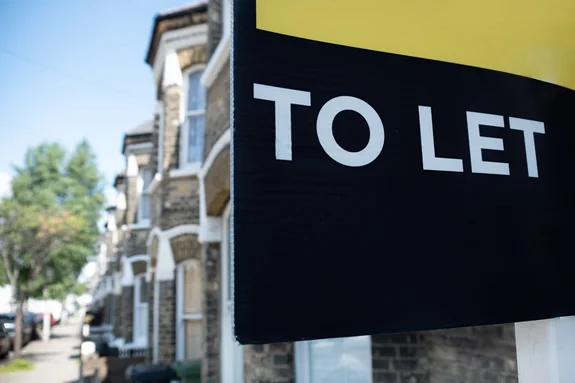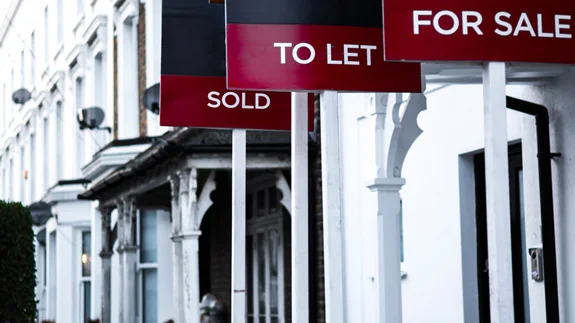Controversial Computerised Housing Allocation System Revisited and Adjusted
Government ministers have confirmed that a controversial computerised system used to determine where new housing should be built in England has been adjusted, following a furious backlash from a group of MPs.
The revision of the computer-based formula will ensure greater emphasis is placed on the urban areas and cities in the Midlands and North, ministers confirmed this week.
Those opposing the system in its original form argued that excessive emphasis was being placed on London and the South East, which, according to some, would have led to large proportions of the region effectively being “concreted over.”
Introduced in August, the computerised system was designed to provide local councils with a basic estimate of how many new homes needed to be built in their localities, all of which was geared towards the government’s broader target of 300,000 new homes to be built in England every year by the mid-2020s. However, a group of Conservative MPs voiced criticisms regarding placing such important decisions in the hands of a “mutant algorithm,” which was feared to be fundamentally flawed from the outset.
A shift in supply and demand
The coronavirus pandemic has had a major impact on the housing supply situation in England. With millions now working from home on an indefinite basis and e-commerce booming, business properties and shops all over the country are sitting vacant.
It has therefore been suggested that, to a certain extent at least, it may be possible for some business zones and commercial centres to be repurposed as affordable residential neighbourhoods.
The government’s confirmation of an alteration to the computer-based system suggests it is a possibility that is being actively explored. Rather than focusing predominantly on rural and semi-rural areas around London and the Southeast, housebuilding emphasis is now being shifted to brownfield urban locations in Northern England and the West Midlands.
But while the adjustment is likely to attract praise from any of those who initially criticised the idea, it may make it difficult or impossible for the government to fulfil its guarantee of affordable housing in attractive areas people actually want to live in.
Issues with brownfield site development
Brownfield sites have a tendency to be less than desirable places to live, often due to their inconvenient locations. They can also be extremely expensive and challenging to develop, perhaps due to contamination by industry or the shape and condition of the land.
Where existing business and commercial premises have been repurposed into affordable housing, there have often been serious issues with quality and safety standards.
Former Prime Minister Theresa May labelled the semi-automated system “ill-conceived” back in October, while former Foreign Secretary Jeremy Hunt said that the government was guilty of clearly “undermining” local democracy by going ahead with the initiative without widespread support.
The Conservative Party remains adamant that it will achieve its target of building 300,000 affordable new homes each year in England by the mid-2020s, an assurance even its own backbenchers are beginning to dispute.
Top-Pick Property Hotspots for 2021: Where Have House Prices Risen the Most?
To say that 2020 has been quite an unusual year for the UK property market would be a major understatement. With the fallout of the COVID-19 crisis expected to linger for some time, real estate experts are predicting similarly turbulent conditions throughout much of 2021.
Uncertainty and economic turmoil have, however, had little impact on the appeal of some of the UK’s most desirable places to live. Looking ahead into 2021 and beyond, there are several towns and cities where property prices are predicted to continue accelerating wildly.
The most lucrative places to live or own
According to the latest figures published by Ocean Finance, house price growth over the past two decades in some of England’s key towns and cities has been astonishing.
Right at the top of the table comes Manchester, with a whopping 143% average property price increase since 2000. This means that a property purchased for around £74,000 20 years ago would now be worth almost £180,000—an enormous profit for those who invested at the right time.
Leicester followed in a close second position, having achieved an impressive 132% average property price growth in two decades. Those who bought in 2000 and sold in 2021 could be looking at average profits in the region of £155,000.
Bristol came in third, achieving 122% average property price growth from £137,742 to £291,839. That’s a huge profit of more than £150,000 on the table for those who sell in 2021.
Unsurprisingly, the vast majority of people who purchased properties in London 20 years ago could make an absolutely enormous profit by selling now. On average, a £360,000 property in London would sell for approximately £785,000 today—an increase of 116%.
Surprisingly, strong performance was noted in Kingston-Upon-Hull, where average property prices have increased by 112% over the past 20 years. In monetary terms, this amounts to an average profit of around £60,000 for those who purchased two decades ago and intend to sell on today’s market.
Cambridge didn’t trail too far behind with its own 101% average house price increase over the same two-decade period. Average house prices in Cambridge have risen from £224,000 to an astonishing £450,000, amounting to a generous profit of around £226,000.
Property prices in Brighton have also increased exponentially over the years; today’s average asking price is around £372,000, compared to just £187,000 20 years ago.
Homeowners in Derby who purchased properties in 2000 would have been looking at an average cost of just under £83,000—their homes are subsequently worth an average of £162,000 today, an average increase of 96%.
Last but not least, Coventry has performed similarly well since 2000, having achieved an average property price increase of 95%. This means that a £97,000 property picked up 20 years ago would now sell for around £190,000, pocketing you an impressive profit in the process!
A New Up-Front Rental Payment System Was Launched in the UK
Following a successful two-year trial, a new up-front rental payment system is being rolled out across the UK. Known as the Advanced Rent Option, the new system provides letting agents with the option of offering landlords one year’s rent in advance as part of their service package.
According to those responsible for the ARO, the scheme could radically change the private lettings industry by enabling agents to build better relationships with landlords.
The Advanced Rent Option simply enables agents to provide upfront payments when securing the business of landlords and has proven to be an extremely popular and powerful prospecting tool during the scheme’s initial trial.
Simon Shine rock, who created and launched the ARO, said that response among small to medium-sized businesses in particular has so far been outstanding.
“This project has been in the pilot stage for two years, and it has proven to bring huge benefits to the lettings market, offering peace of mind to landlords as well as an invaluable marketing and prospecting edge for selected agents,” he said.
“The response since launch has been beyond our expectations, and we have been able to demonstrate that ARO is the holy grail of landlord prospecting and lead generation, attracting more landlord inquiries at a lower cost than any other form of marketing.”
“Now agents across the UK can stand out from the crowd by offering landlords something that no one else can. ARO is available for reliable, proactive, and go-ahead agents who understand the value of the ARO and how to use it to fast-forward their businesses and grow their managed portfolios.”
“We are looking forward to working with our ARO licenced agents to offer landlords a better, more secure, and more versatile service.”
Elsewhere, Moss Property director Sanjay Gandhi has been making use of the scheme for several months, with ARO having played a direct role in helping him grow his local business.
“I wanted to look at ways to generate new landlords and thought that ARO would be the perfect product to do that. We have competitors in the town who offer a rent guarantee, but the difference with that product is they take a 35 per cent cut and don’t really offer market value,” he said.
“Since launching ARO a few months ago, we’ve grown our portfolio by around three to four per cent. I’ve got to highlight that it’s not for everyone. I’ve had many landlords who’ve said they like the idea but are happy to have the rent paid monthly and go on with our standard service. But we would not have been able to speak to that landlord if we didn’t ARO in the first place.”
“It’s been a great new business generator and has helped to bring more landlords into our standard service, as they know that with us, they can switch over to an ARO licence should they decide they want it at a later date.”
Two-Year Remortgage Deals Back at Halifax, Rates Overhauled
Halifax has confirmed the re-introduction of its popular two-year remortgage product, while at the same time outlining a series of overhauls to several major remortgage deals.
Customers remortgaging with Halifax now have a total of three fee options to choose from at four LTV (loan-to-value) levels, with loans available for up to 85% of the total value of the property.
Remortgage options will now be available with fee options of £1,500, £999, or no fee at all. The Halifax confirmed that only remortgage loans of £250,000 or more will be available with the highest fee option.
Halifax confirmed that remortgage rates will vary from 1.2% up to a maximum of 60% loan to value with the £1,499 fee option through to 2.88% up to a maximum of 85% loan to value with no fee payable.
Additional interest rate increases have been applied to the lender’s five-year and three-year remortgage deals: up to 0.28% with some loans. There have also been reductions of up to 0.14% elsewhere.
Further advance rates and product transfer rates have been reduced by up to 0.52%; other products have been increased by up to 0.22%.
BM Solutions
At the same time, BM Solutions, a Lloyds Banking Group company, has announced alterations to its own five-year and two-year further advance and product transfer rates.
However, the bank stopped short of confirming the extent of the interest rate increases in its statement.
Manchester is the UK’s New Buy to Let Hotspot
Manchester has risen through the ranks to become the UK’s most appealing and profitable prospect for buy-to-let investments. That’s according to the latest figures from Aldermore’s Buy to Let City Tracker, which positions the city of Manchester above all other UK regions as the country’s new hotspot.
The second-best location for buy-to-let investments was Cambridge, followed by London in third place.
Aldermore’s tracker takes a number of factors into consideration, ranking towns and cities by way of short-term rent yields, average monthly rent prices, long-term returns through increasing house prices, the strength of the rental market in the region, and the total housing stock available.
Major residential and commercial development projects across Manchester since 2015 also contributed to its newfound status as a top buy-to-let location, according to Aldermore.
Key points of appeal
Manchester has one of the lowest overall vacancy rates and available property inventories of any comparable city, resulting in an average annual house price growth of 4.1%.
In addition, private landlords operating in Manchester benefit from consistently solid rental returns. Fuelled by a city with one of the largest private rental markets in the UK, 31% of those living in Manchester currently rent privately.
Speaking on behalf of Aldermore, head of mortgage distribution Jon Cooper highlighted Manchester’s growing potential as a safe haven for buy-to-let investments.
“There has been a high level of uncertainty for landlords since the COVID-19 outbreak, and they have had to continuously adapt to a raft of challenges, but with so many working from home right now, it reinforces the importance of a robust and diverse private rental sector,” he said.
“The changing needs of renters, whether to move to a new location or a different type of property to fit flexible working demands, have created investment opportunities for landlords.”
“The private rented sector is vital to the economy right now and its recovery from the pandemic, so landlords should seek portfolio advice from their lenders to see how they can look at new ways to support the sector.”
Compare the Market Fined £17.9 Million for Artificially Inflating Insurance Costs
Price comparison site Compare the Market has been handed a £17.9 million penalty for falsifying information presented to customers. The service that enables customers to compare the market for mortgages, insurance, and other financial products faces accusations of artificially inflating home insurance costs.
The Competition and Markets Authority (CMA) reports that Compare the Market unfairly prevented insurers from advertising their products at lower prices elsewhere. This may have subsequently prevented thousands or even millions of consumers from accessing the best possible deals on their insurance premiums by providing them with misleading information.
Compare the Market has subsequently responded, stating that the company “fundamentally” disagrees with the ruling and maintains its innocence.
“We fundamentally disagree with the conclusions the CMA has drawn and will be carefully examining the detailed rationale behind the decision and considering all of our options,” read the statement issued by Compare the Market.
Limiting access to competitive deals
Compare the Market was created for the sole purpose of simplifying the process of comparing offers from as many providers as possible in order to access the best possible deal; however, the accusations of the CMA suggest that those who used the service to compare the market for insurance quotes may have been deliberately denied access to the most competitive offers.
“Price comparison websites are excellent for consumers. They promote competition between providers, offer choice for customers, and make it easier for consumers to find the best bargains,” commented Michael Grenfell, speaking on behalf of the Competition and Markets Authority.
“It is therefore unacceptable that Compare the Market, which has been the largest price comparison site for home insurance for several years, used clauses in its contracts that restricted home insurers from offering bigger discounts on competing websites, so limiting the bargains potentially available to consumers.”
Furthermore, the published findings of the CMA included the following conclusions:
- The insurers bound by the contracts were prohibited from offering cheaper deals on other price-comparison websites.
- Rival comparison sites could not offer lower prices, for example, by lowering their commission fees to encourage insurers to quote lower prices on their platforms.
- Without the clauses, Compare the Market itself would have had to compete harder to get lower prices from the home insurers.
In an interview with BBC Radio 4, Mr Grenfell accused Compare the Market of ‘anti-competitive’ activities that ultimately stood to both harm the competition and prevent customers from accessing the best possible deals on their insurance products.
“We show that it had real anti-competitive effects, that there were cases where insurance companies wanted to offer promotions or discounts on other websites, and they were prevented from doing so as a result of the clauses,” Mr. Grenfell told the BBC.
The investigation into Compare the Market’s anti-competitive behaviour was conducted over the course of three years. The company has since indicated its intent to challenge the ruling.
If looking to get the best possible deal on a loan, mortgage, or financial product of any kind, compare the market in its entirety with the help of UK Property Finance.
Up to 250,000 Mortgage Payers Held ‘Prisoner’ by Their Lenders
Over the past decade, the number of mortgage payers trapped in highly uncompetitive deals has skyrocketed. According to the latest figures published by the London School of Economics, as many as 250,000 mortgage ‘prisoners’ are paying exponentially more than the average rate of interest on their loans. Work out what mortgage would cost by using our UK mortgage calculator
Many of whom are being forced to pay double the interest that would be payable on a more competitive fixed rate deal.
This is proving particularly difficult during the coronavirus pandemic, as household budgets are stretched to and in some cases beyond breaking point. New data suggests that these mortgage prisoners are as much as 40% more likely to default on their loans than other borrowers, as a result of the pandemic.
Imprisoned in high-interest loans
The term ‘mortgage prisoner’ is used in relation to those who are prevented from switching to more competitive deals by their lenders. Having started out with an affordable loan charged at a competitive introductory rate of interest, their mortgages were subsequently switched to variable rate loans by their lenders.
Over time, the interest rate on the loan gradually increases to such a point that the borrower is paying significantly more than the Bank of England base rate, or typical industry norms. Many of those affected today are paying in the region of 5% on their variable rate mortgages when introductory fixed-rate deals available elsewhere are charged from as little as 2%.
However, the terms and conditions of their loans disallow them from switching to a more competitive deal elsewhere.
Elevated risk of mental illness
The financial struggles of those affected have been directly linked with an elevated risk of mental illness. Many mortgage prisoners have suffered from chronic anxiety, stress and depression over fears of falling behind on their repayments and subsequently losing their homes.
Martin Lewis of Money Saving Expert spoke of the government’s ‘moral responsibility’ to step in and do something about the issue.
“Mortgage prisoners are the forgotten victims of the 2008 financial crash,” he said.
“The government at the time chose to bail out the banks, but unfairly., immorally, hundreds of thousands of their victims were left without adequate help, trapped in their mortgages and the financial misery caused by it. And they have been forgotten ever since,”
“There is a moral responsibility to release money to free mortgage prisoners from their penury,”
“Intervention can and will save lives.”
Commenting on behalf of the Treasury, a spokesperson offered non-binding reassurance that the government is aware of the issue and will continue to make efforts to support struggling mortgage payers.
“We know that being unable to switch your mortgage can be incredibly difficult,” read the response from the Treasury.
“Thousands of borrowers will now find it easier to switch to an active lender or continue interest-only payments thanks to recent rule changes by the Financial Conduct Authority – and we have been working closely with the industry to ensure more is done to help those who are eligible to switch,”
“We remain committed to looking for practical new solutions for borrowers who are struggling.”
The Housing Market Will Remain Active During The Second Lockdown
In what’s being heralded as a victory for both common sense and the economy as a whole, housing minister Robert Jenrick has confirmed that the UK’s housing market will remain active during the second lockdown.
The government recently outlined new restrictions with an initial end date of December 2, though the second lockdown is not expected to have nearly as devastating an impact on the housing market as the first.
In addition to confirming that the market will remain open, Mr. Jenrick also indicated that further details will be published by the FCA on new mortgage payment holidays for existing borrowers. He was also adamant in pointing out that those looking to relocate or purchase their first homes over the next four weeks will have every opportunity to do so.
“The housing market will remain open throughout this period. Everyone should continue to play their part in reducing the spread of the virus by following the current guidance,” he said.
“Tradespeople like [sic] electricians, plumbers, and repairers of domestic appliances can enter your home. They will need to follow social distancing guidance that has already been published,” he added, while confirming hardware shops will be authorised to continue doing business.
A question of demand
Though the decision to keep the housing market open during the second lockdown has been welcomed across the industry, some have questioned whether demand will be sufficient to sustain its performance.
Mortgage consultant Chris Sykes expressed concern over the likelihood of prospective buyers purchasing properties during lockdown, along with the extent to which the new restrictions could make it even more difficult to qualify for a mortgage.
“The question remains: how many people are going to be out and about viewing property given the circumstances?” he said.
“Ultimately, this is likely to entrench the current trends for those looking to move to houses with more space, both outdoors and to work remotely, and means areas outside major cities are likely to see higher demand than pre-COVID.”
“A second lockdown and the corresponding economic repercussions are exactly why mortgage lenders have been cautious of late.”
“We expect to see further restrictions on borrowing, certainly for those with deposits smaller than 20 per cent, with these products almost certainly becoming even harder to find, and those that are available will charge even higher rates to account for the risk.”
A less severe slowdown
While the second lockdown will inevitably have an impact on the housing market, most experts believe it will not be nearly as severe as the previous total shutdown.
“Thankfully, this second lockdown is unlikely to be as devastating as the first,” said Melanie Spencer of MCI Mortgage Club.
“But there will be a shrinkage of customers who work in affected sectors such as leisure, retail, and hospitality, as lenders will naturally adjust their risk appetites; therefore, for those fortunate not to be overly affected, they will still have the opportunity to take advantage of the stamp duty holiday, but it will create further divides between the haves and have-nots.”
“Finally, given the unknown quantities of the EU/UK trade agreement and the potential impact on the UK consumer in 2021 on affordability as duty on imported goods is likely to rise, we might just see the final push for property before we dive into even further uncertainty.”








